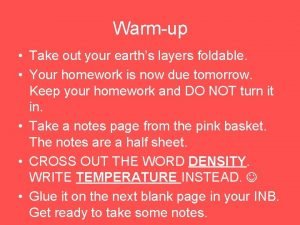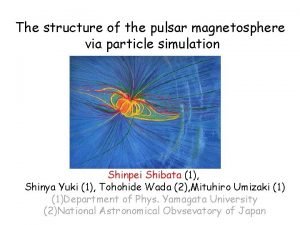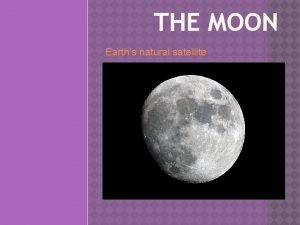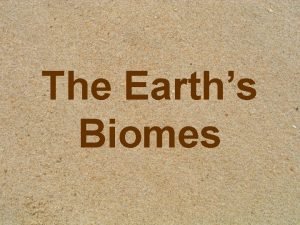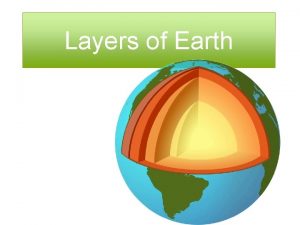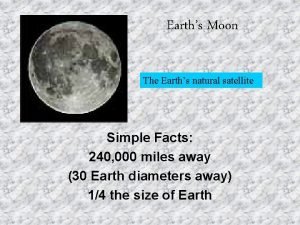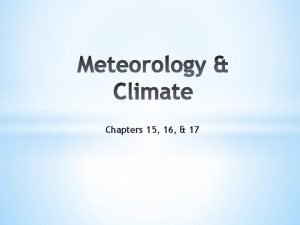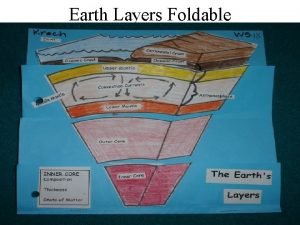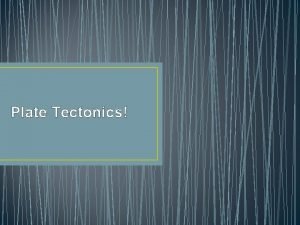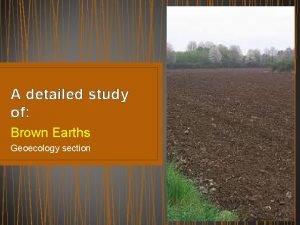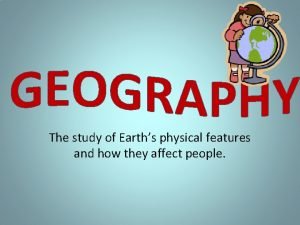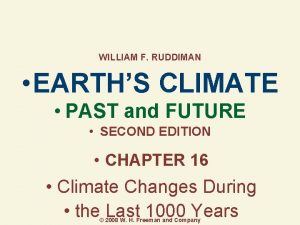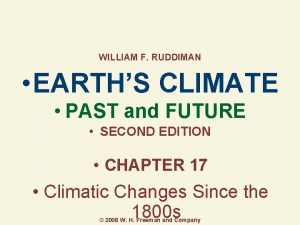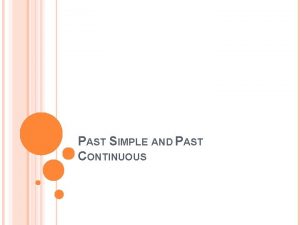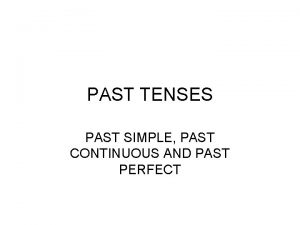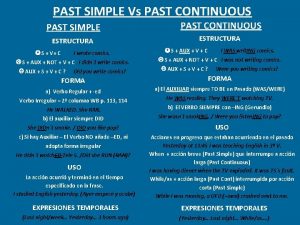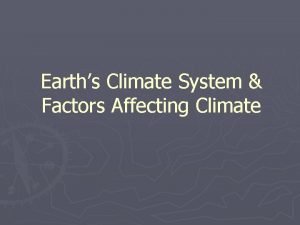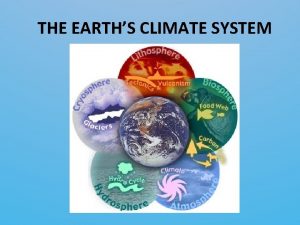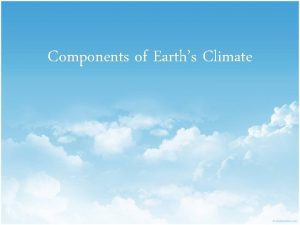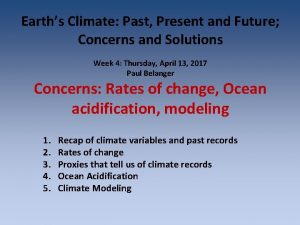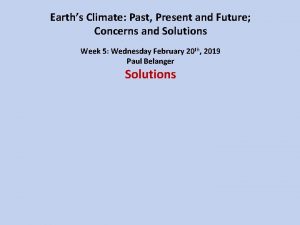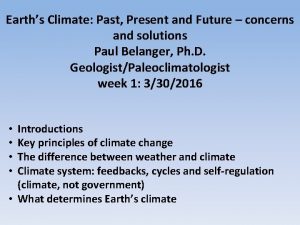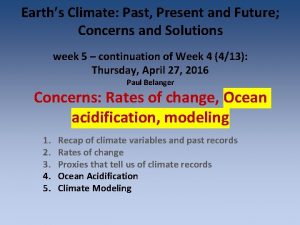WILLIAM F RUDDIMAN EARTHS CLIMATE PAST and FUTURE


















- Slides: 18

WILLIAM F. RUDDIMAN EARTH’S CLIMATE PAST and FUTURE SECOND EDITION CHAPTER 10 Orbital-Scale Changes in Carbon Dioxide and Methane © 2008 W. H. Freeman and Company

What was the main driver of tectonic timescale climate change? • Atmospheric CO 2 levels • Did atmospheric CO 2 levels change with the glacial/interglacial cycles? – YES! • How do we know they changed? – From measurements of air bubbles trapped in Antarctic ice • Record now goes back over 600, 000 years








Activity: What does this figure tell you? When ice volume is low, CO 2 levels are at their maximum (280 -300 ppmv) and visa versa (minimum 180 -190 ppmv) CO 2 seems to change roughly in tandem with changes in ice volume What doesn’t this figure tell you? How CO 2 levels are related to changes in ice volume

Last full cycle showing error bars on measurements

Atmospheric CO 2 and the Ice Ages • Activity: Why might these be linked? – Hint: what parts of the carbon cycle are affected by the ice ages? • Many possibilities: – CO 2 more soluble in colder ocean – Oceanic biologic activity fertilized by glacial dust – Changes in ocean p. H • Potential for positive feedback between CO 2 and ice volume (p. 265 -266) • Problem not solved!

Tracer to look at changes in distribution of C in global carbon reservoirs = carbon isotopes

Which reservoir of C has the largest capacity to absorb extra C?

Evidence that the strength of Thermohaline Circulation has changed with the glacial cycles is clear How exactly this affects the CO 2 concentration of the atmosphere is not clear

What is the main source of Methane in nature? Given the insolation the ice-core methane record is compared to on the right, which orbital cycle is driving the change in methane? What climatic phenomenon is driving the change in methane?

What drives what? The Paleoclimatologist’s puzzle According to the graph on the right, which comes first, changes in methane or changes in ice volume? Which came first, changes in CO 2 or ice volume? Based on these relationships, Ruddiman argues that CO 2 and methane can play a role in forcing ice volume changes and as a feedback mechanism for ice volume changes

precession tilt
 Future continuous and future perfect continuous difference
Future continuous and future perfect continuous difference Future perfect continuous and simple
Future perfect continuous and simple Climate change 2014 mitigation of climate change
Climate change 2014 mitigation of climate change Past simple and pas continuous
Past simple and pas continuous Write a story using past simple and past continuous
Write a story using past simple and past continuous The earths layers foldable
The earths layers foldable Earths roation
Earths roation Whats earths moon called
Whats earths moon called What makes one biome different from another?
What makes one biome different from another? Most common elements in the earth's crust
Most common elements in the earth's crust How thick is the earths crust
How thick is the earths crust Whats earths moon called
Whats earths moon called Earth's thickest layer
Earth's thickest layer Earths early atmosphere contained
Earths early atmosphere contained Earth layer foldable
Earth layer foldable Earths major crustal plates
Earths major crustal plates Earths orbit seasons
Earths orbit seasons Brown earths
Brown earths Earths physical features
Earths physical features





